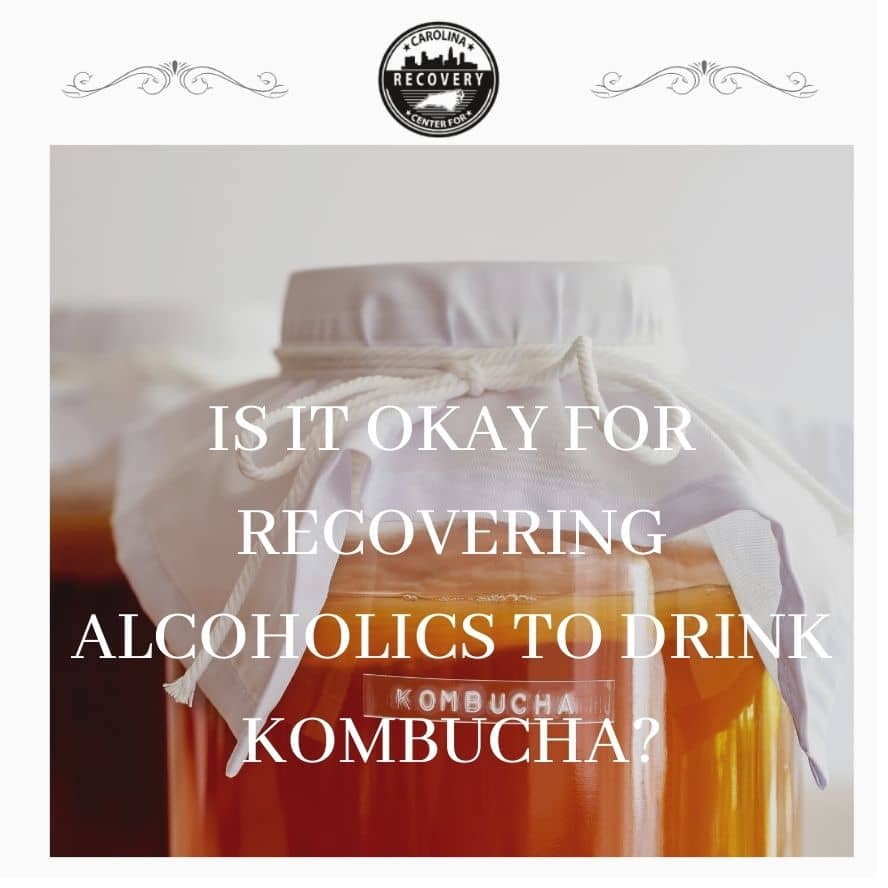Is it Okay for Recovering Alcoholics to Drink Kombucha?

Medically Verified: 2/1/24
Medical Reviewer
Chief Editor

All of the information on this page has been reviewed and verified by a certified addiction professional.
Living with addiction can lead to serious damage to your mental and physical health. For many people with an addiction to drugs or alcohol, participating in a substance abuse treatment program is the only way to overcome this condition.
Addiction is never truly cured. Instead, people in recovery must find ways to stay committed to sobriety. For many, this means attending therapy, joining support groups, or being active in alumni groups. Staying engaged in recovery may also mean avoiding all drugs and alcohol or anything that may contain these substances. But what about kombucha?
Kombucha is a fermented tea beverage popping up in stores, restaurants, and breweries. With over $500 million in sales, you’ve likely heard of it. This tart, bubbly drink has many reported health benefits, but it also contains trace amounts of alcohol. So, is it OK for someone to drink kombucha in recovery?
The answer is a little more complicated than you might expect. Keep reading for more information about the risks and benefits of recovering alcoholics drinking kombucha.
What is Kombucha?
Kombucha is a beverage made from tea, sugar, yeast, and bacteria. Fermentation occurs when a symbiotic culture of yeast and bacteria–often called the SCOBY–converts the tea’s caffeine and sugar into beneficial bacteria and acids.
The bacteria in kombucha are believed to have numerous health benefits, including improving the health of the gut and digestive system. Other reported benefits include:
- Improved digestion
- Weight management
- Balanced hormones
- Improved skin health
- Better immunity
- Improved mental health
- Less inflammation
- Antioxidants
- Antibacterial properties
In one study using rats, kombucha was proven to improve liver health by aiding the removal of toxins from the rats’ bodies. However, no human studies have verified any health claims made about kombucha.
Can I Drink Kombucha in Recovery?
The fermentation process used to create kombucha also creates trace amounts of alcohol. Alcohol levels in commercially-produced kombucha hover at around 0.5% ABV. Some people brew kombucha at home. Homemade kombucha often has higher alcohol percentages–as much as 3%. To put this in perspective: some beer has 4% ABV.
Some people may want to drink this bubbly beverage for its reported health benefits but may worry about the risks of recovering alcoholics drinking kombucha. Is it worth the risk?
First, it would be nearly impossible to drink enough commercially-produced kombucha to get drunk. If you are in recovery and want to drink kombucha, make sure you stick to the store-bought stuff. Be aware of any urges to try to drink more to try to become intoxicated or to try to brew your own with higher alcohol content. Don’t drink kombucha in recovery if you feel like it might interfere with your recovery in any way.
Understanding the Risk of Recovering Alcoholics Drinking Kombucha
For some people in recovery, drinking kombucha can be just another aspect of a healthy diet. For others, though, it may be a slippery slope that sets people back in their recovery.
Some people may start by drinking kombucha in recovery and then wonder if they might be able to handle having just one alcoholic drink. If you are experiencing cravings or feel unsure about your sobriety in any way, you may want to avoid drinking kombucha.
It’s also crucial that you know that the alcohol content in kombucha can vary quite a bit. Kombucha is not pasteurized, and there is no universal standard for its alcohol content. The amount of alcohol in a serving of kombucha could vary from batch to batch–or even bottle to bottle. Because of the way kombucha is bottled, it continues to ferment while sitting on the shelf. This means an older bottle of kombucha could have a little higher ABV than a newer one.
It is also important to be aware of hard kombucha. Hard kombucha is a beverage made in a way that creates a higher ABV–often right on par with beer or hard seltzer drinks. If you choose to drink kombucha in recovery, always make sure you avoid specially-made hard kombucha.
If you decide the risks of recovering alcoholics drinking kombucha are too high, but you still want some of the health benefits of this drink, there are other fermented foods to add to your diet. These include:
- Kimchi
- Kefir
- Miso
- Yogurt
- Water kefir
- Sauerkraut
- Sourdough bread
- Soy sauce
Like with kombucha, you must only consume commercially-produced versions of these foods to avoid risks to your health or sobriety.
Do Recovering Alcoholics Drinking Kombucha Need Substance Abuse Treatment?
If you find that you are struggling with sobriety in recovery, it may be a sign that you need more treatment or other support. Drinking kombucha in recovery isn’t necessarily a problem. But if you have the urge to drink more to try to feel intoxicated or are tempted to brew it with a higher ABV, you might be headed toward a relapse.
Be aware of your feelings and cravings. Check in with how you are coping with challenges or difficult emotions. Recovery is a lifelong process, and you may need to develop new skills. Don’t wait until you are in trouble to get help.
Find Help Now
For more information about our substance abuse treatment programs, reach out to the Carolina Center for Recovery staff today.

